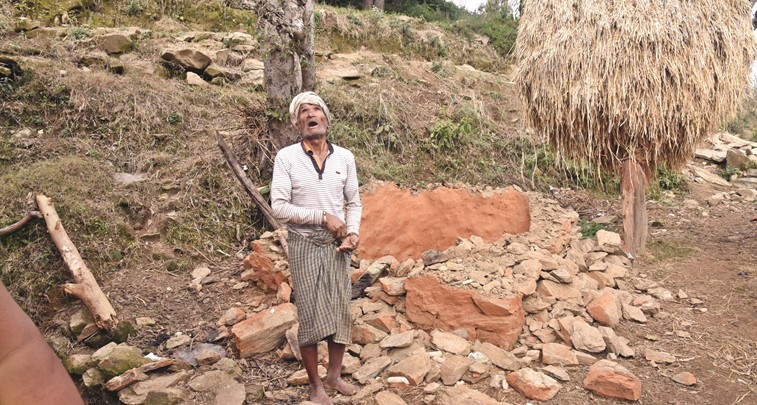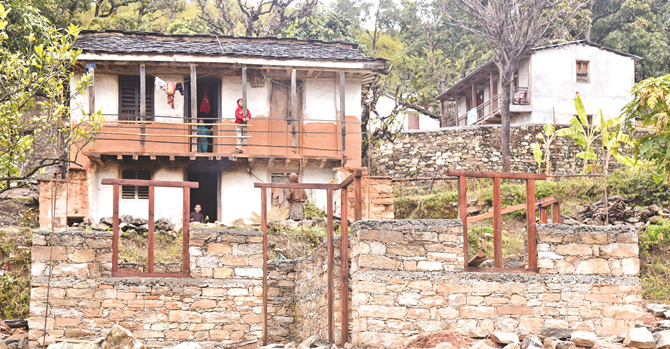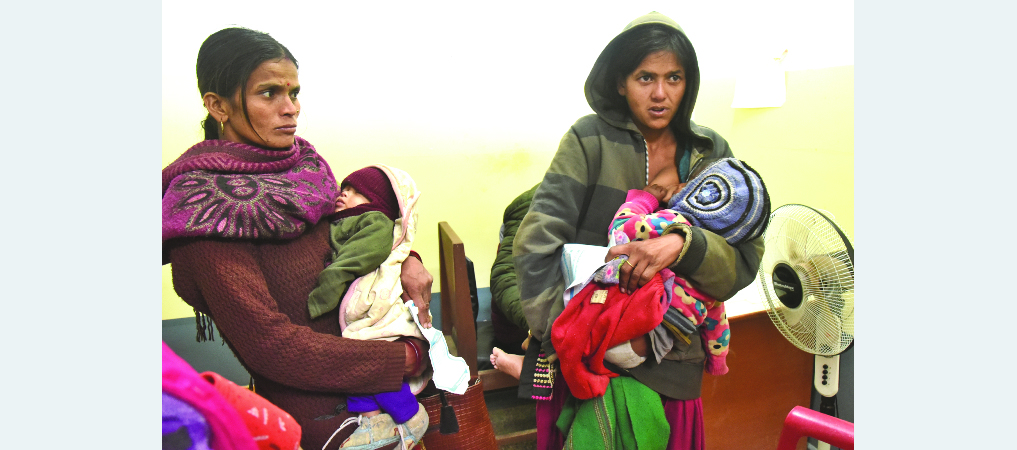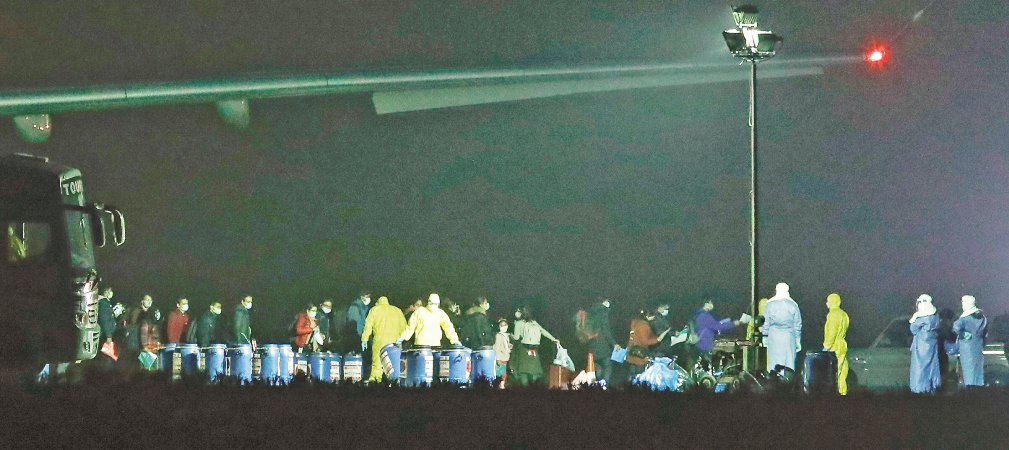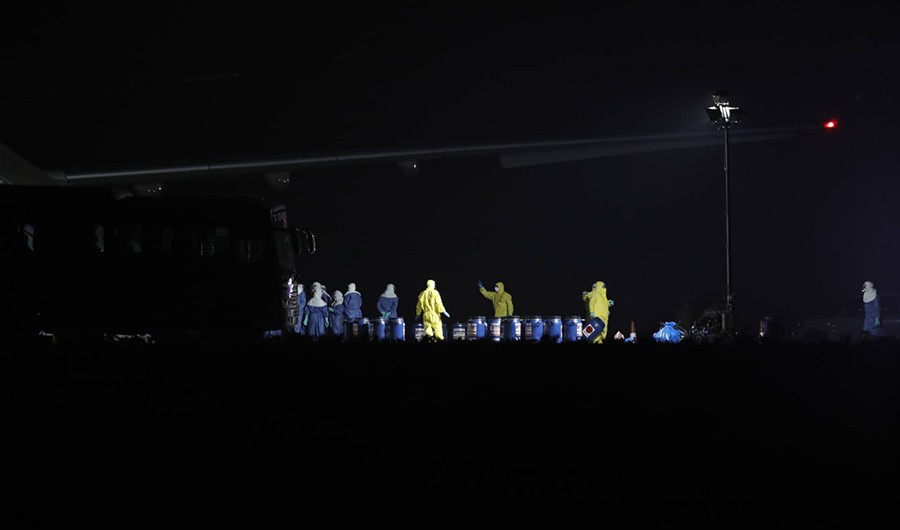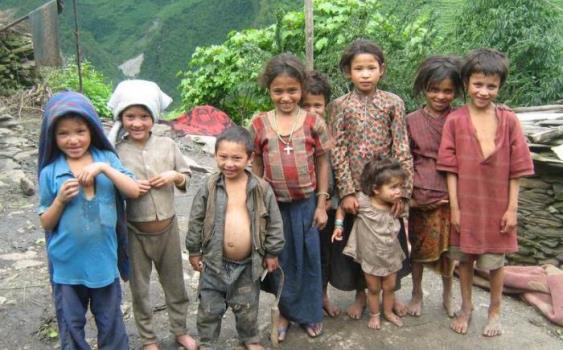Healthy Nepal, main health policy

By Ajita Rijal
Kathmandu, May 16: President Bidya Devi Bhandari said that the priority of the government in the upcoming fiscal year (FY) would be to minimise the threats of the COVID-19 pandemic and make the country free from the coronavirus.
Likewise, the President said that establishing a Healthy Nepal was the main health policy of the government. Also, one of the priorities of the government is to construct infectious disease hospitals, with laboratory facilities, in all the seven states in the upcoming fiscal year as part of its proposed policies and programs.
Presenting the government's annual policy and programme for the upcoming FY 2020/21 at the joint meeting of the Federal Parliament-
the House of Representatives (HoR) and National Assembly (NA), President Bhandari said that ultra-modern and well-equipped infectious disease hospitals would be established.
The hospital will be a 300-bedded at the central level and minimum 50-bedded at state-levels. Currently, the Sukraraj Tropical and Infectious Disease Hospital (STIDH) is the only federal level infectious disease hospital.
The government has also proposed to upgrade the current five major hospitals in the country- Koshi, Narayani, Bharatpur, Bheri and Dadeldhura Hospitals-- into 500-bedded specialised hospitals in the upcoming FY. Likewise, the country’s largest Kanti Children’s Hospital in Kathmandu is to be developed as children’s’ disease study centre. Similarly the Thapathali-based maternity hospital is also to be upgraded.
19 new health sector programs proposed
In the 63-page policy document, the government has proposed 19 programmes that fall under the Ministry of Health and Population (MoHP) for the upcoming FY.
Some of these programmes include establishing a Pandemic and Health Emergencies Fund and setting up modern health desks and quarantines centres at the international airports and international border points.
The government plans to establish a Center for Disease Control (CDC) Nepal for prevention and control of disease. A Food and Drug Administration (FDA) is also to be established to regulate medicines and quality of medical equipment. Also the government has proposed to give continuity to health services in every ward. At every local levels and based on geography and population a five to 15-bed basic hospitals will be established and upgraded.
At state levels, the existing district hospitals will be upgraded to a 25 to 50-bed hospitals while the zonal hospitals will be upgraded into 200-bed general hospitals.
Likewise, the government will make arrangements to operate an integrated ambulances services so that the citizens can easily get ambulances in a hassle-free and simple way by dialing a three-numbered phone from anywhere within Nepal. Also, the government plans to expand trauma centers at major highways.
As per the proposed programme, free first level emergency medical service is to be provided to the poor and underprivileged at hospital and centers that are within central-level jurisdiction.
Likewise, considering that the government’s ongoing health insurance programme has reached 551 local levels, it now proposes to expand it nationwide to cover and reach all citizens in the next three years. Free blood pressure, albumin and diabetes check will be provided to citizens aged above 40years at the ward level health centers.
Recent News

Do not make expressions casting dout on election: EC
14 Apr, 2022
CM Bhatta says may New Year 2079 BS inspire positive thinking
14 Apr, 2022
Three new cases, 44 recoveries in 24 hours
14 Apr, 2022
689 climbers of 84 teams so far acquire permits for climbing various peaks this spring season
14 Apr, 2022
How the rising cost of living crisis is impacting Nepal
14 Apr, 2022
US military confirms an interstellar meteor collided with Earth
14 Apr, 2022
Valneva Covid vaccine approved for use in UK
14 Apr, 2022
Chair Prachanda highlights need of unity among Maoist, Communist forces
14 Apr, 2022
Ranbir Kapoor and Alia Bhatt: Bollywood toasts star couple on wedding
14 Apr, 2022
President Bhandari confers decorations (Photo Feature)
14 Apr, 2022



